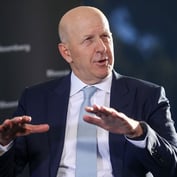President Donald Trump’s directive to review the Labor Department’s fiduciary standard rule won’t halt the industry’s evolution into a sweeping fiduciary landscape, while firms failing to adapt will suffer from a weakened marketing position, Harold Evensky, the “Dean of Financial Planning,” told ThinkAdvisor, in an interview.
A vocal proponent of the fiduciary standard for all FAs, Evensky, 74, discussed one major way the new Labor secretary could try to change the rule in light of Trump’s Feb. 3 memorandum directing the agency to assess and, if necessary, revise the rule to conform with his push for relaxed regulation. On Friday, the Labor Department filed to delay the rule’s implementation.
As expected, Trump issued an executive order, also on Feb. 3, aimed at rolling back the Dodd-Frank Act through a number of cuts. Gutting Dodd-Frank, Evensky argues, would put consumers’ assets in jeopardy by returning to the MO of the country’s loosely regulated pre-financial crisis years.
Evensky is chairman of Evensky & Katz/Foldes Financial, based in Coral Gables, Florida, and the largest independent RIA in the state with $1.5 billion in assets under management. Evensky and partner Deena Katz, his wife, work from Lubbock, Texas, where he is a graduate adjunct professor of wealth management at Texas Tech University.
A founding member of the Committee for the Fiduciary Standard, fee-only Evensky has long hailed the fiduciary rule, applicable to retirement accounts, as “a seminal event that will significantly improve investment outcomes for individual investors.”
ThinkAdvisor recently spoke by phone with the prominent planner, who, despite what he views as a regulatory setback, remains undeterred. Here are highlights of our interview:
How is delaying the Labor Department’s fiduciary rule impacting firms?
A number of major banks and financial services firms have already spent months moving in the direction of meeting the requirements. So whether the rule continues to exist or not, [the fiduciary standard] will be a reality for a significant portion of the industry. Firms that don’t change will be in a very poor marketing position compared to those that do.
In what way might the department weaken the rule?
It could be changed so that it becomes nonsense by redefining the concept of fiduciary in a way that no fiduciary would ever recognize; that is, it would become the same as the suitability standard. With the fiduciary standard, if the advisor has a conflict, they have to disclose and manage it in the client’s best interest. You can’t opt out of a fiduciary relationship. But they could put in a provision to the fiduciary rule so that the client could say, in effect, “I’m not going to hold you to it.”
Most consumers don’t know the difference between the two standards anyway.
They have no idea. But there’s a huge difference. Under suitability, there’s the principle of caveat emptor – buyer beware. If something goes wrong, the buck falls on the shoulders of the buyer. Under the fiduciary standard, if something goes wrong, it’s on the shoulders of the advisor. What about the Best Interest Contract Exemption, or BICE, aspect?
The BICE is admittedly complex and requires a fair amount of effort to meet. But the reason for it is basically to put a round peg in a square hole – to allow brokers to receive commissions under a fiduciary standard, which, on its face, is an oxymoron. The existence of the BICE is an accommodation. It wasn’t intended as a punishment.
President Trump wants to roll back the Dodd-Frank Act. What would that do?
People tend to forget what [the country] went through with the banking crisis and the Great Recession as a result of the activities of an awful lot of banks. So [with repeal], down the road, we may face that again. The administration and both sides of Congress could do significant damage and move us back to the freewheeling ways of the banking system. That’s not something I’m particularly in favor of. But when you have a cabinet of billionaires, a billionaire president and [giant] companies in favor of rolling back Dodd-Frank — as well as the DOL fiduciary rule — you want to ask yourself, whose best interest is that in?
A big argument from the industry, and one that Trump cited, is that repeal of the rule would limit retirement investment choices for clients who pay on a commission basis. Your thoughts?
Horse pucky. That’s just beyond nonsense. There have been a number of studies demonstrating that that’s just a nonsensical argument. There’s nothing whatsoever to suggest they can’t continue to charge commissions.
But the argument goes that the small investor won’t be able to afford to get advice.
Well, legally, you have to be an investment advisor to give advice. There is, however, what’s called a broker-dealer exemption: If the advice is incidental, then they’re exempt from the fiduciary standard. But that’s not how [FAs] present it to the public. It’s: “We’ll wrap arms around you. We’ll help you plan.” That’s not “incidental.” And to the extent that they’re in fact doing all that, they’d have to be RIAs anyway and subject to a complete fiduciary standard.
The fiduciary rule opens up the possibility of lawsuits and, particularly, class-action suits. Not surprisingly, the industry strongly objects to that aspect.








 February 14, 2017 at 09:37 AM
February 14, 2017 at 09:37 AM










